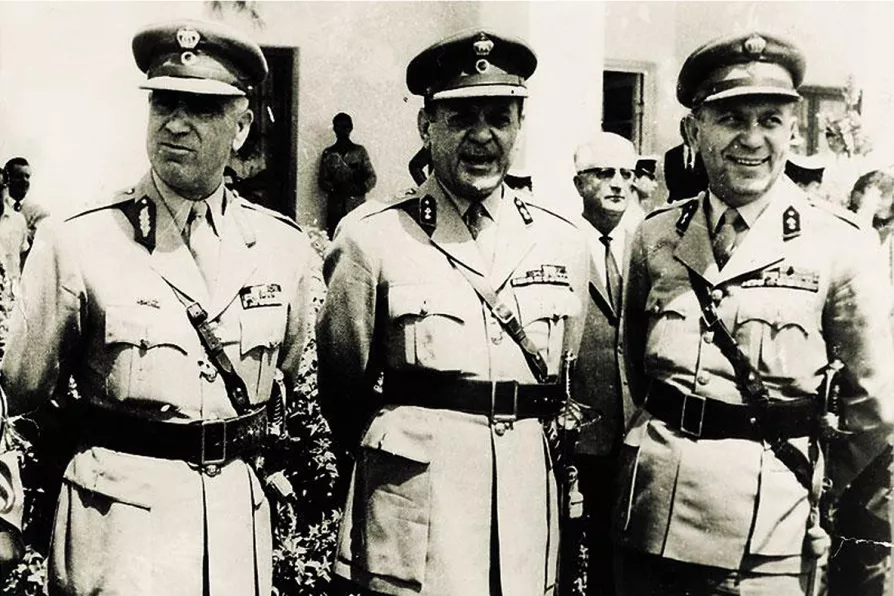Corbyn’s intervention exposes a corrupted system, writes CLAUDIA WEBBE

 DICTATORS: (left to right) StylianosPattakos, Georgios Papadopoulos
and Nikolaos Makarezos lead the 1967 coup
DICTATORS: (left to right) StylianosPattakos, Georgios Papadopoulos
and Nikolaos Makarezos lead the 1967 coup
LIBERAL fans of the dead Queen and new King argue Britain’s constitutional monarch guards against the dangers of presidential power. It’s the argument that you can’t ask for anything better, because you’ll just end up making it worse.
Royalty promotes a general sense of deference and tradition but doesn’t hold much political power. By having a ceremonial head of state, we avoid a powerful president, who could be worse. In an extreme version of this argument, monarchy can save a country from fascism.
George Orwell argued this during WWII: “A French journalist said to me once that the monarchy was one of the things that has saved Britain from fascism.

RON JACOBS welcomes a book that tells the story of the far right in Greece from the perspective of migrants

JOHN GREEN welcomes an insider account of the achievements and failures of the transition to democracy in Portugal

These are vivid accounts of people’s experiences of far-right violence along with documentation of popular resistance, says MARJORIE MAYO












